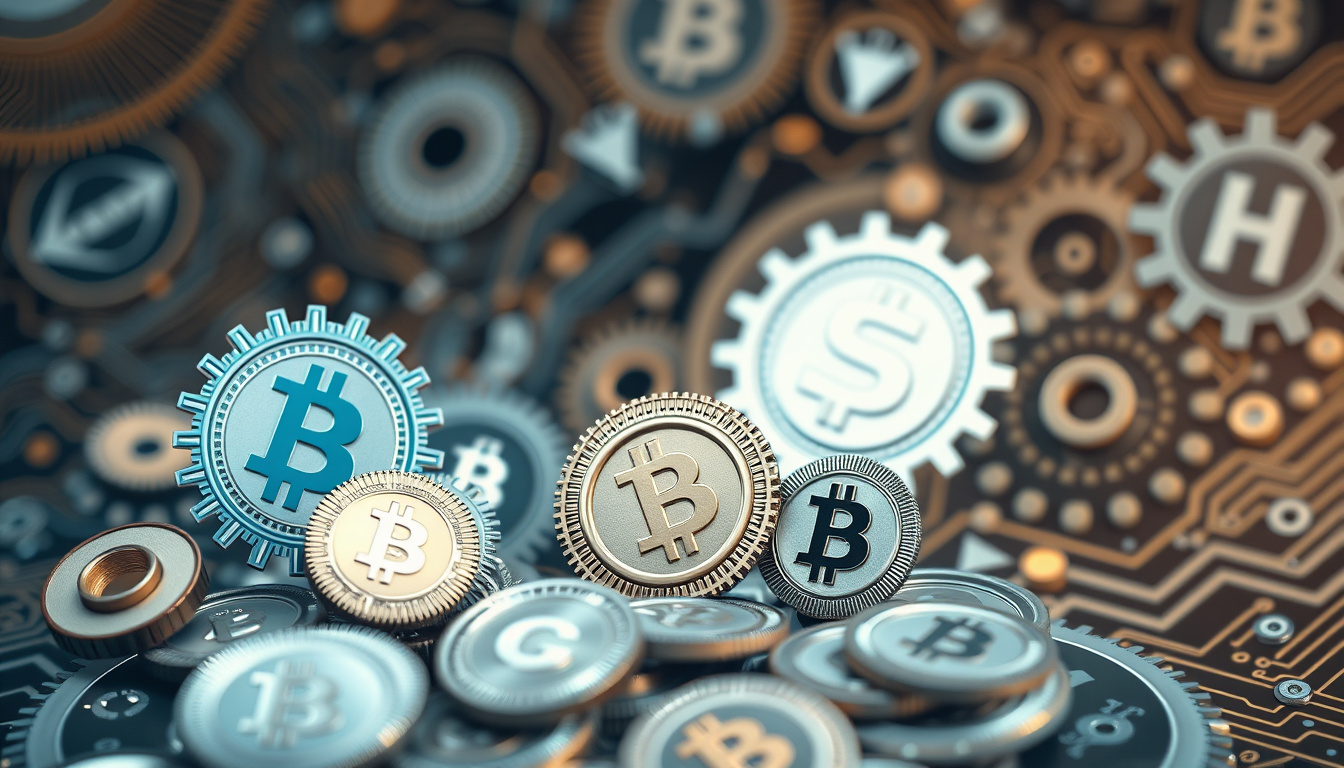Have you ever wondered how businesses can enhance their operations while maximizing asset value? Tokenization might just be the answer you’re looking for. In a rapidly evolving digital landscape, tokenization allows companies to convert real-world assets into digital tokens, making transactions smoother, more secure, and immensely rewarding. By adopting solutions like ivault, businesses can not only leverage tokenization but also tap into the potential of earning crypto through peer-to-peer transactions. In this article, we’ll break down what tokenization is, explore its key benefits for modern businesses, and discuss best practices for implementing this innovative approach.

Key Takeaways
- Tokenization enhances data security by replacing sensitive information with non-sensitive tokens.
- Using tokenization helps businesses comply with regulations like PCI DSS, reducing their risk of data breaches.
- Tokenization improves customer trust and satisfaction by safeguarding personal data during transactions.
- Implementing tokenization can streamline operations and reduce costs associated with data management.
- Best practices for tokenization include thorough vendor evaluation and ongoing security audits to ensure effectiveness.
Understanding Tokenization: What It Is and How It Works
Tokenization is a method that converts physical or digital assets into units of value—tokens—that can be easily transferred and managed on a blockchain. This process allows for enhanced security, transparency, and accessibility. By turning your valuable items into digital assets, you can leverage their worth in ways you may not have considered. With ivault, the tokenization benefits extend beyond simple ownership; you can rent, lend, or borrow these tokenized assets while earning crypto rewards. Imagine having a high-end camera or a power tool just sitting in your garage, losing value over time. Instead, ivault enables you to tokenize these items, allowing others to rent them securely, which not only generates passive income but also keeps your belongings in circulation. With blockchain backing each transaction, you can rest assured of its security and authenticity. This shift towards tokenization with ivault isn’t just about earning; it’s about redefining how we think about asset ownership and maximizing their value in the Web3 economy.
Key Benefits of Tokenization for Businesses
Tokenization offers numerous benefits for businesses looking to strengthen their asset management and customer engagement. Firstly, by converting physical assets into digital tokens, companies can enhance liquidity, making it easier to monetize unused resources. This is where ivault comes into play, allowing businesses to tokenize items and securely share, lend, or borrow them while earning crypto rewards in the process. Additionally, tokenization minimizes fraud risk through blockchain’s transparent record-keeping, providing businesses with trustless transactions that build customer confidence. With ivault’s innovative platform, businesses can tap into the growing shareconomy, creating new income streams while fostering community connections. In a landscape where digital ownership is becoming crucial, embracing tokenization through ivault isn’t just a smart move—it’s essential for thriving in the Web3 economy.
‘In the world of digital assets, tokenization not only enhances value but also opens new avenues for innovation.’ – Unknown

Implementing Tokenization: Best Practices and Considerations
Tokenization is reshaping how we view ownership and transactions, particularly in the realm of digital assets. By converting physical items into digital tokens, users can unlock various tokenization benefits, such as increased liquidity, enhanced security, and simplified peer-to-peer transactions. Imagine being able to monetize your unused belongings, like that camera lying in your closet, with ivault. You can list it as a digital asset for rent or borrow—earning crypto rewards while ensuring every transaction is securely recorded on the blockchain. This not only maximizes your asset value through continuous engagement but also fosters community trust, as the transparent nature of blockchain eliminates the risk of fraud. With ivault, implementing tokenization isn’t just a technical adjustment; it’s a pathway to smarter financial decisions in the Web3 economy.
Frequently Asked Questions
What is tokenization?
Tokenization is the process of turning sensitive data into a unique identifier or ‘token’ that retains all the essential information about the data without compromising its security. This helps protect sensitive information while enabling safer transactions and data management.
What are the key benefits of tokenization for businesses?
The key benefits of tokenization for businesses include enhanced data security, compliance with regulations such as GDPR and PCI-DSS, improved customer trust, and the ability to streamline operations by securely handling sensitive data.
How does tokenization improve data security?
Tokenization improves data security by replacing sensitive data with non-sensitive equivalents, or tokens, which can only be mapped back to the original data by authorized systems. This minimizes the risk of data breaches and unauthorized access.
What best practices should businesses follow when implementing tokenization?
When implementing tokenization, businesses should conduct a thorough risk assessment, choose reliable tokenization solutions, ensure proper integration with existing systems, provide employee training, and regularly review and update their security protocols.
Is tokenization suitable for all types of businesses?
Yes, tokenization can be beneficial for various types of businesses, particularly those that handle sensitive information such as payment processing firms, healthcare providers, and any organization required to comply with data protection regulations.
